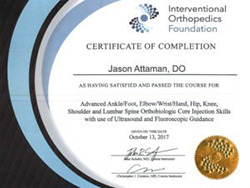As a kid, your being “double-jointed” may have been fodder for a fun party trick. It may have even felt a bit like having a superpower. It may have even helped you be pretty good at dancing or gymnastics initially.
Of course, you didn’t get your first choice of superpower, and those double joints became a problem as you got older. You may have even experienced some related pain as a child. You probably had benign hypermobility syndrome or hypermobility joint syndrome (HJS).
If you are in the Seattle area, you can consult with Dr. Jason Attaman to discuss treatment options.
What is Hypermobility Joint Syndrome?
HJS is a muscle problem caused by issues in the connective tissues. It can lead to joint and muscle pain, especially after heavy exertion. The pain is often intense enough to mimic severe forms of arthritis.
You may also see swelling, dislocated joints, thin skin, and varicose veins.
You might not have even connected those “Hey, look what I can do!” feats and the pain you suffer today. Historically, doctors not trained in Integrated Pain Management have poorly diagnosed and acknowledged the extreme pain it can cause, even though as many as 40% of people have HJS to one degree or another.
Treating Hypermobility Joint Syndrome
HJS is hereditary. There is no cure for it. But that doesn’t mean you don’t have treatment options.
Our pain management clinic helps HJS sufferers enjoy long-term pain relief so they can combat the worst effects of the syndrome. Some of the other therapies we have access to have offered success at supporting the connective tissues in your muscles.
We’ll take you seriously. Musculoskeletal pain is seldom “all in your head.” It’s almost always an underlying issue.
We can help you make the accurate diagnosis that might have eluded other providers in the past. If other doctors have told you that the musculoskeletal pain you’re suffering from is “all in your head,” come to us.
Schedule an Appointment Today
If you are struggling with painful joints and muscles, chronic fatigue, frequent headaches, or any other symptom of HJS, you can contact our office in Bellevue, WA, to discuss your needs and treatment options.
